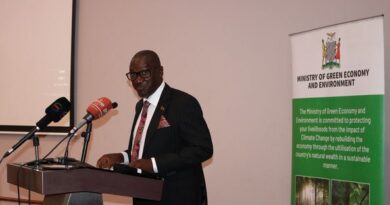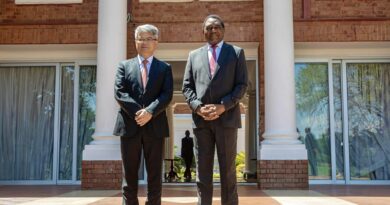Chief Mailo Stands Firm Against Environmental Threats in Serenje
Chief Mailo of the Lala people in Serenje District, Central Province, has rejected an application for a ‘Cord Wood’ harvesting consent within his Chiefdom.
The Traditional Leader firmly stated that threats and attempts to force the consent are futile, emphasizing President Hakainde Hichilema’s strong stance against environmental harm.
Chief Mailo pointed out President Hichilema’s commitment to environmental protection, citing the signing of the Glasgow Leaders Declaration, the establishment of an Environment-focused Ministry, and the closure of non-compliant mines.
The contested consent sought permission to harvest trees for charcoal production, destined for sale to manganese processing plants in Serenje District.
Chief Mailo disclosed that the proposed harvesting area, including the Icitema Lesa Traditional Forest Reserve, serves as the watershed for the crucial Lusiwasi Dam.
Any degradation in this area poses a direct threat to the dam’s future integrity and sustainability, jeopardizing the water and forest resources crucial to his subjects.
Speaking at a Traditional Leaders Caucus organized by the Centre for Environment Justice (CEJ), Chief Mailo emphasized the importance of Lusiwasi Dam for electricity generation at the Lusiwasi Hydro Power Station and the support it provides for water availability for productive use.
The rejection came to light during the caucus, part of the Resilient Initiatives for Sustainable Environment (RISE) Project implemented by CEJ and supported by Bread for the World (BFTW) Germany.
Serenje District Commissioner Paul Masuwa commended Chief Mailo’s decision, asserting that the District Commissioner’s office was unaware of the proposed harvesting, and President Hichilema’s focus on afforestation aligns with the Chief’s refusal.
Emmanuel Mutamba, a board member of CEJ, reiterated the organization’s commitment to fostering effective dialogue on natural resource governance, emphasizing the need to protect and preserve vital ecosystems for the well-being of communities.



